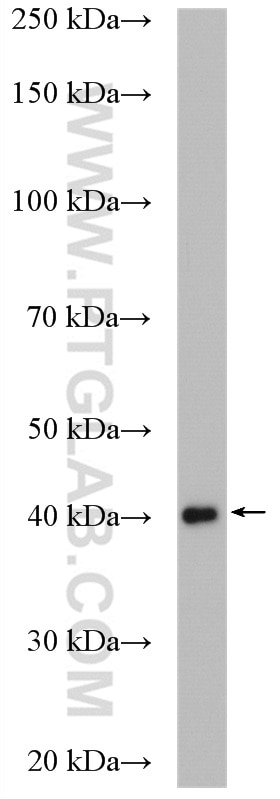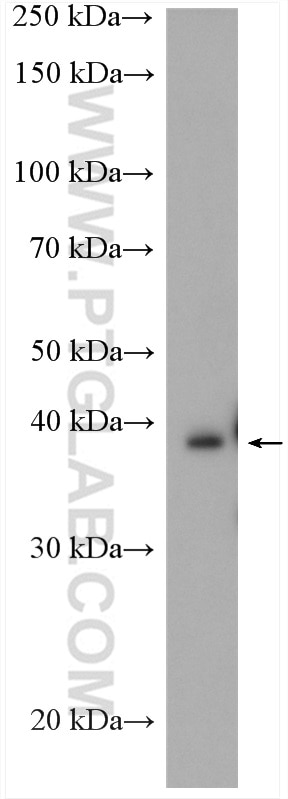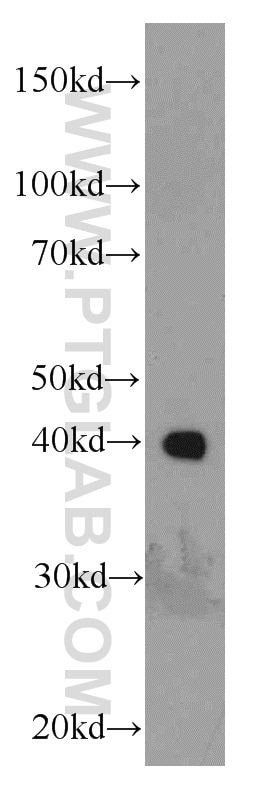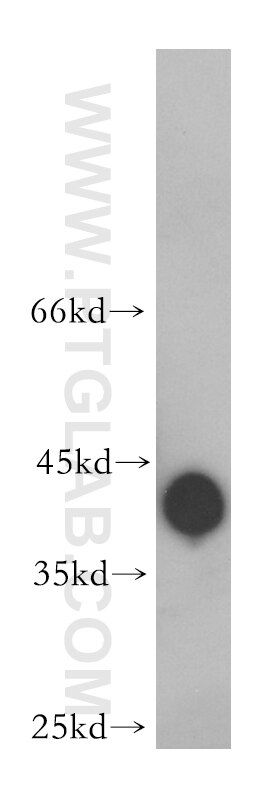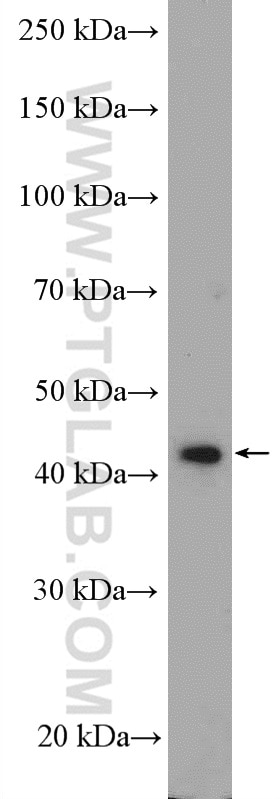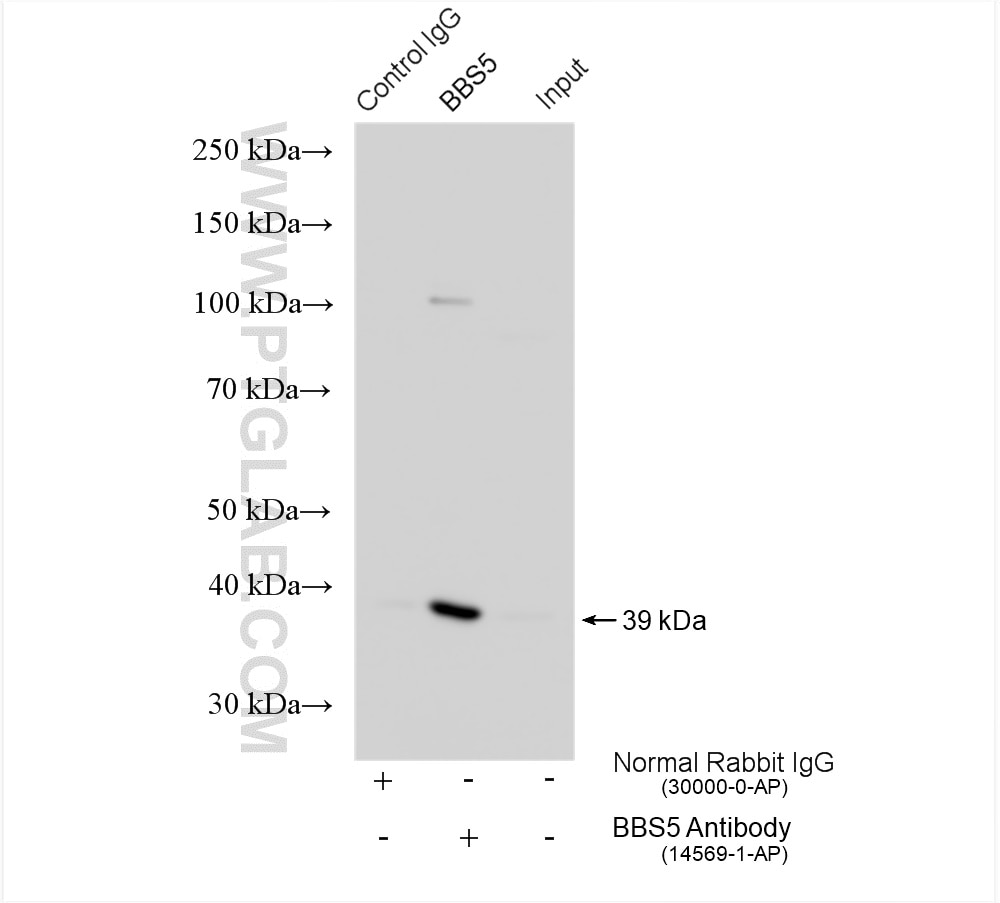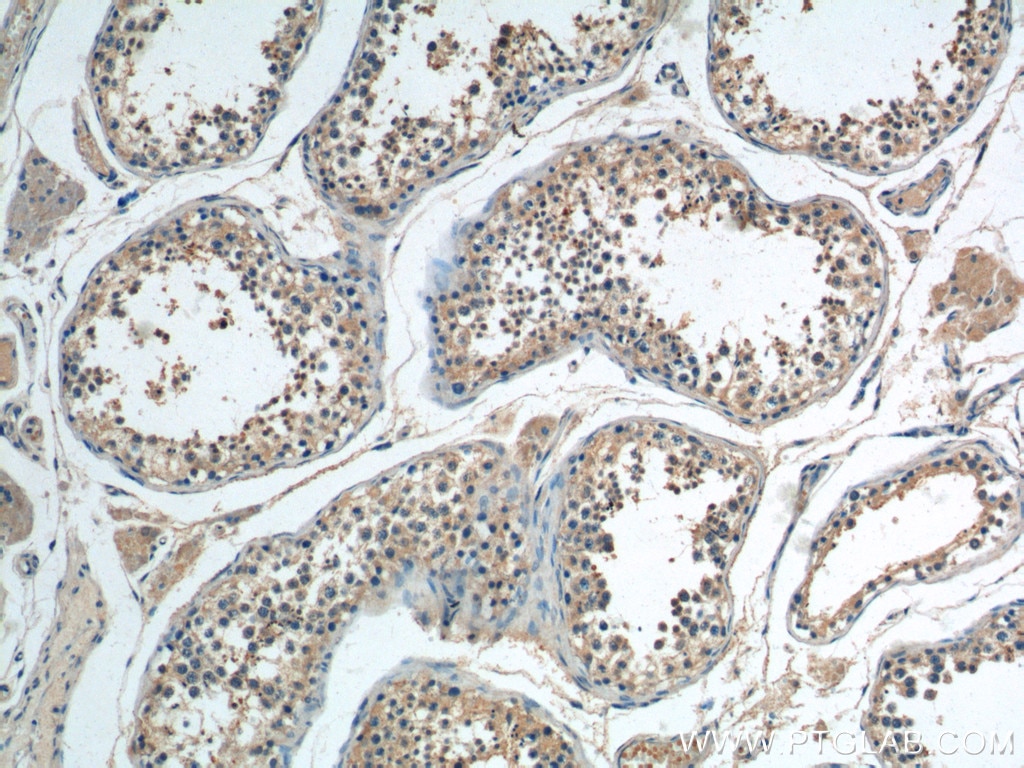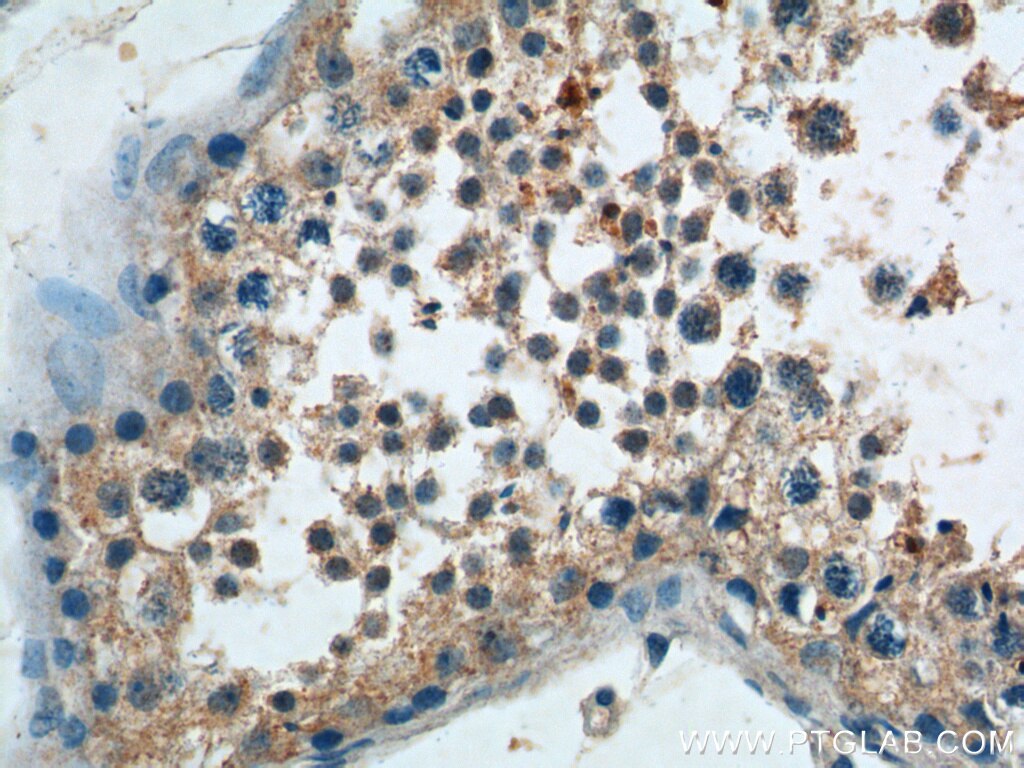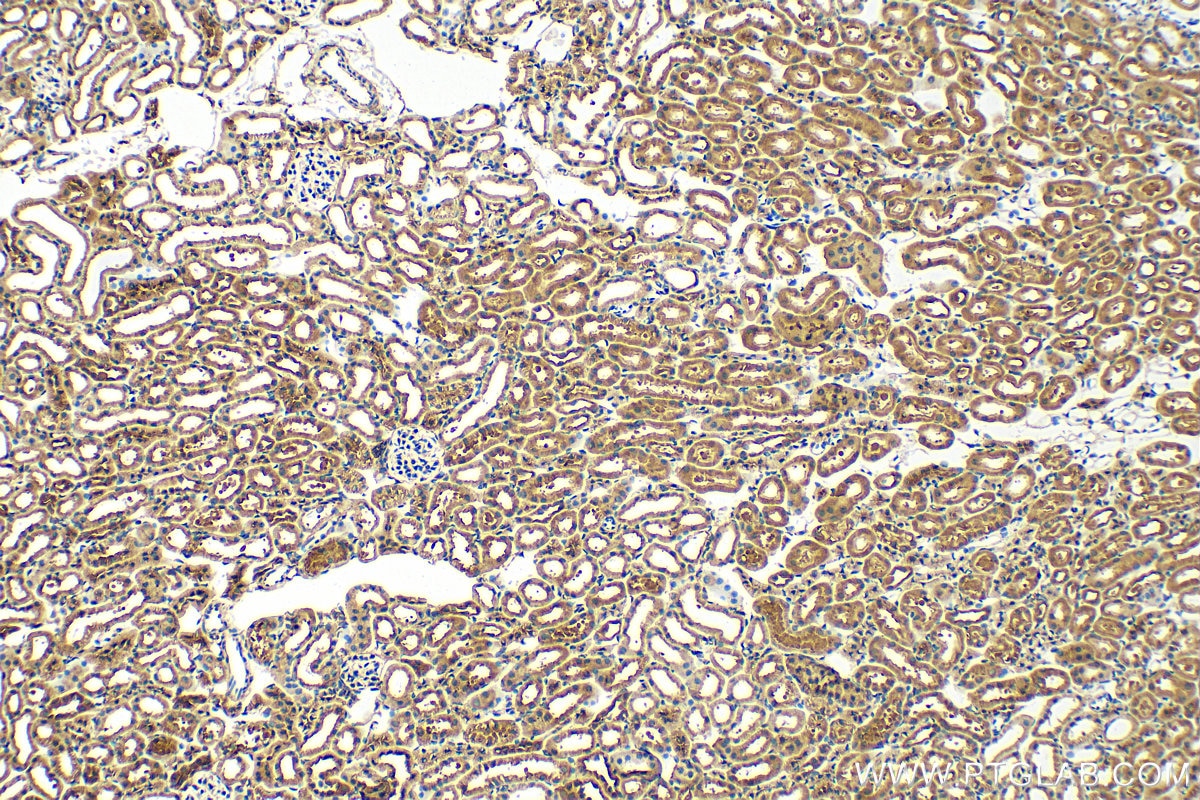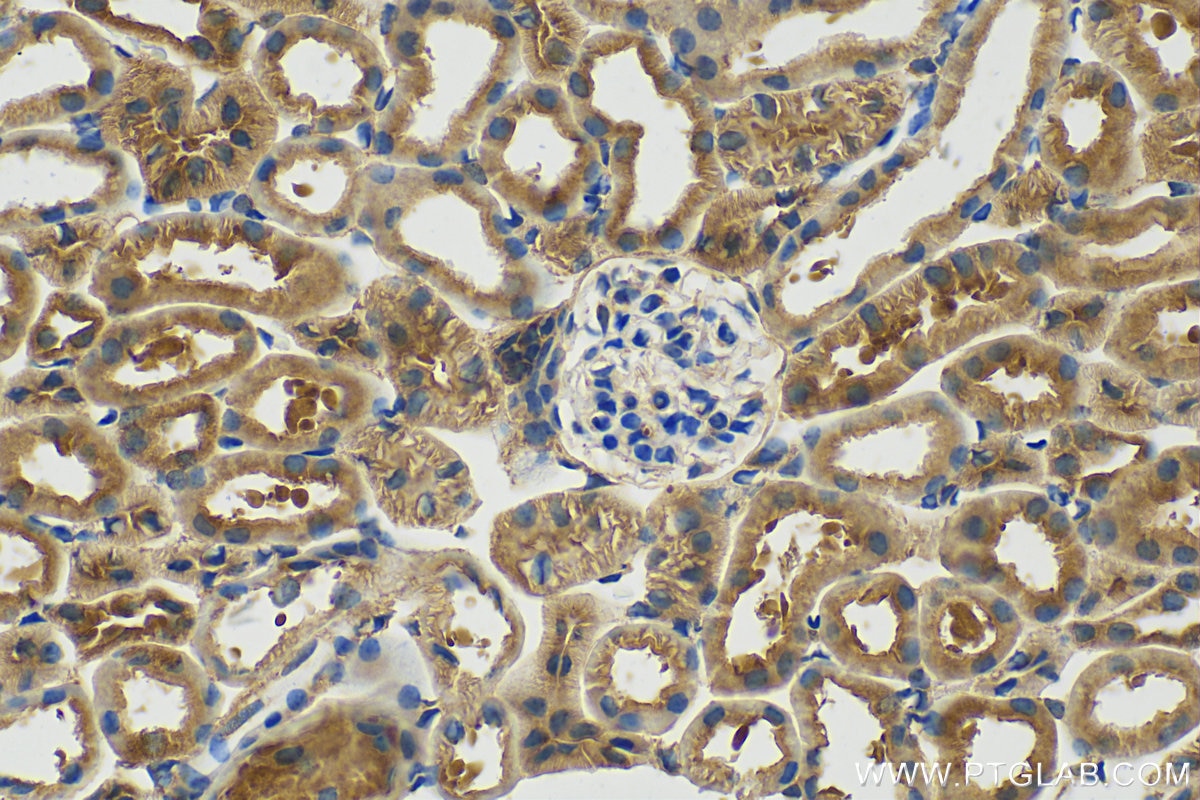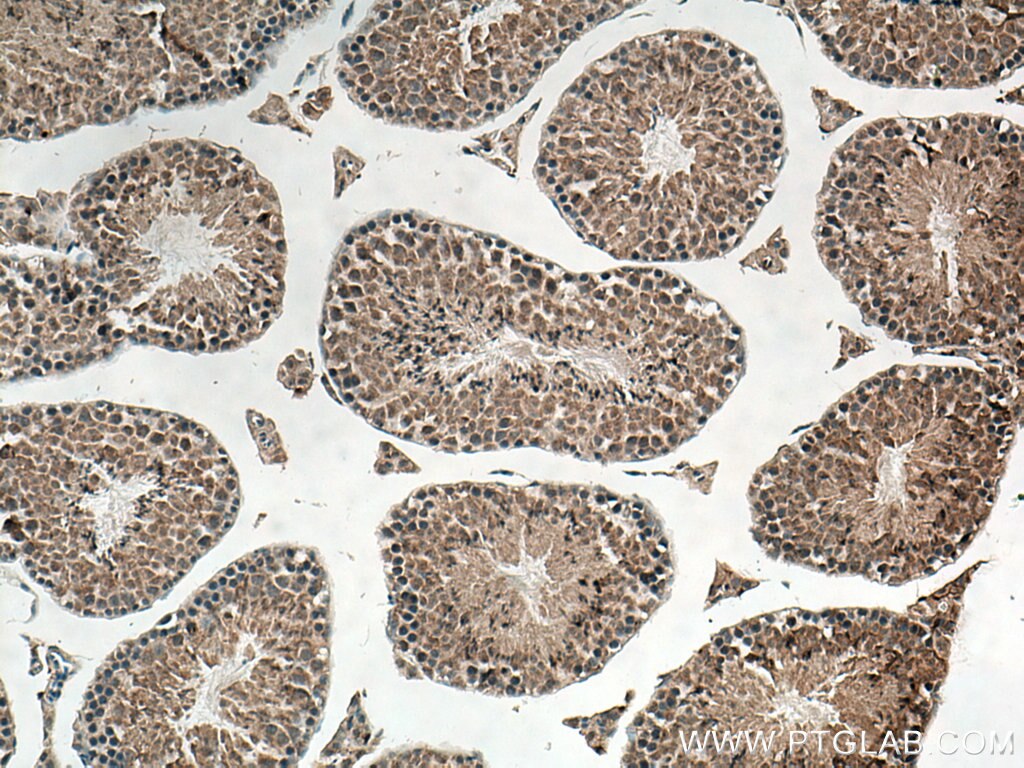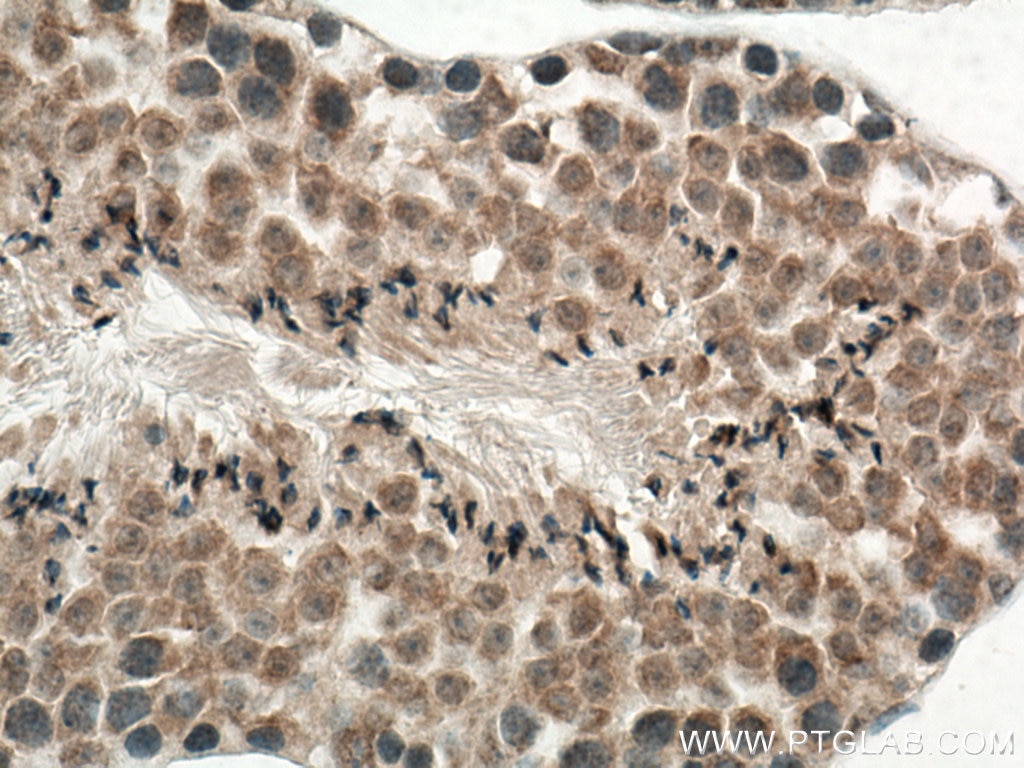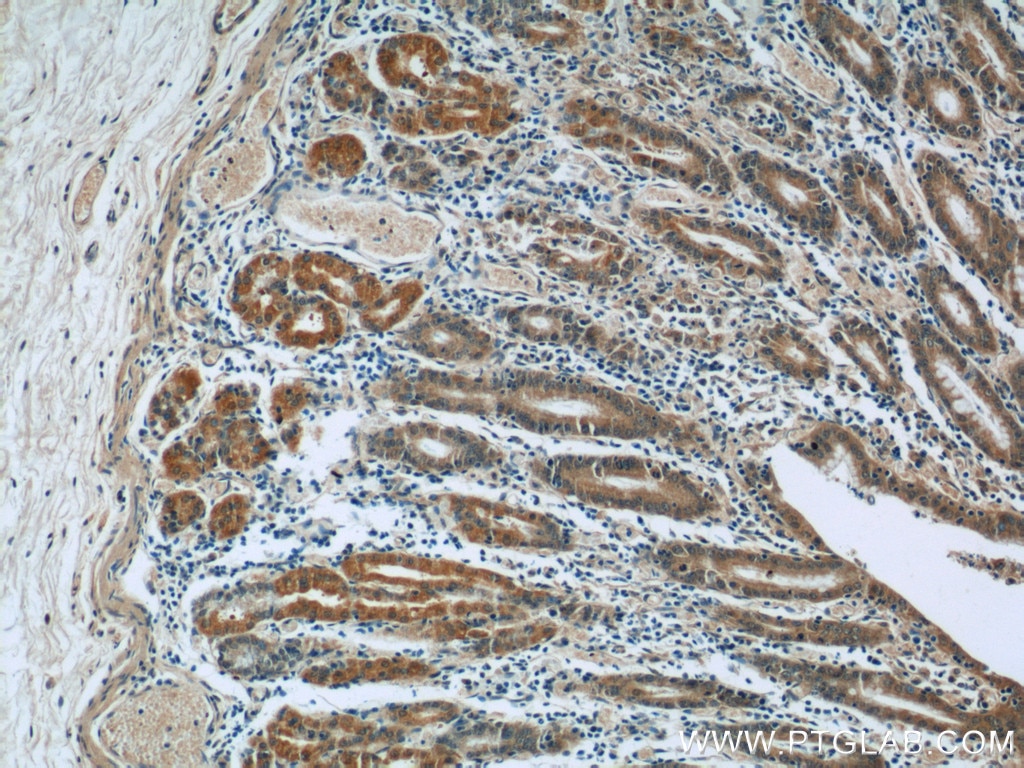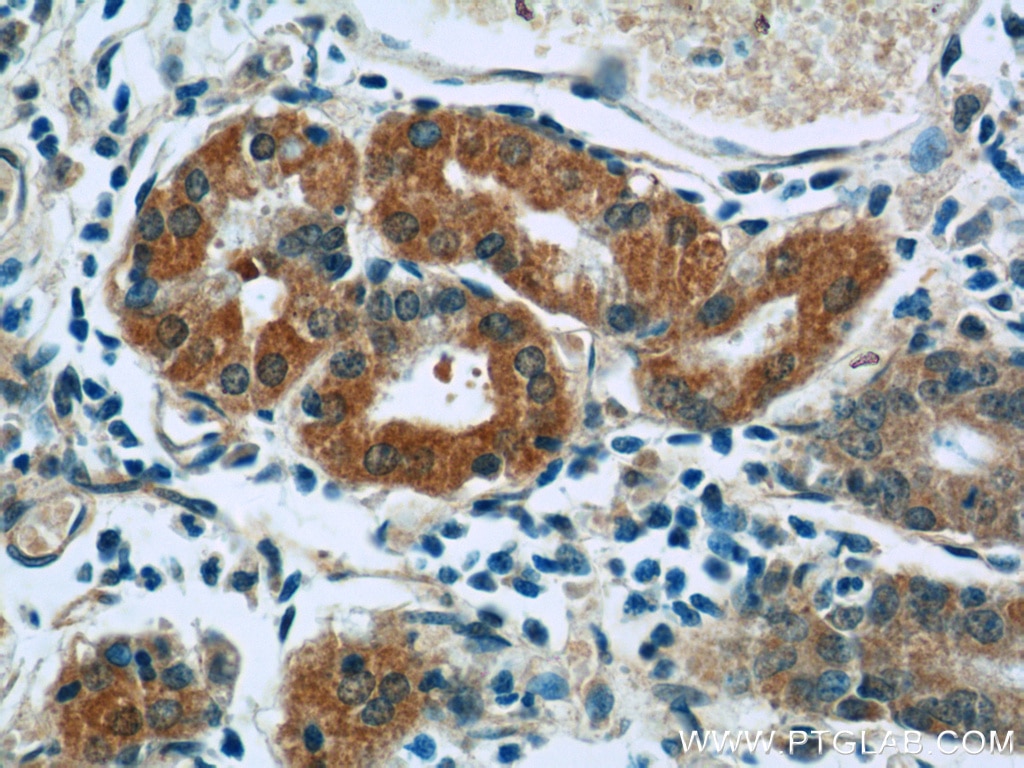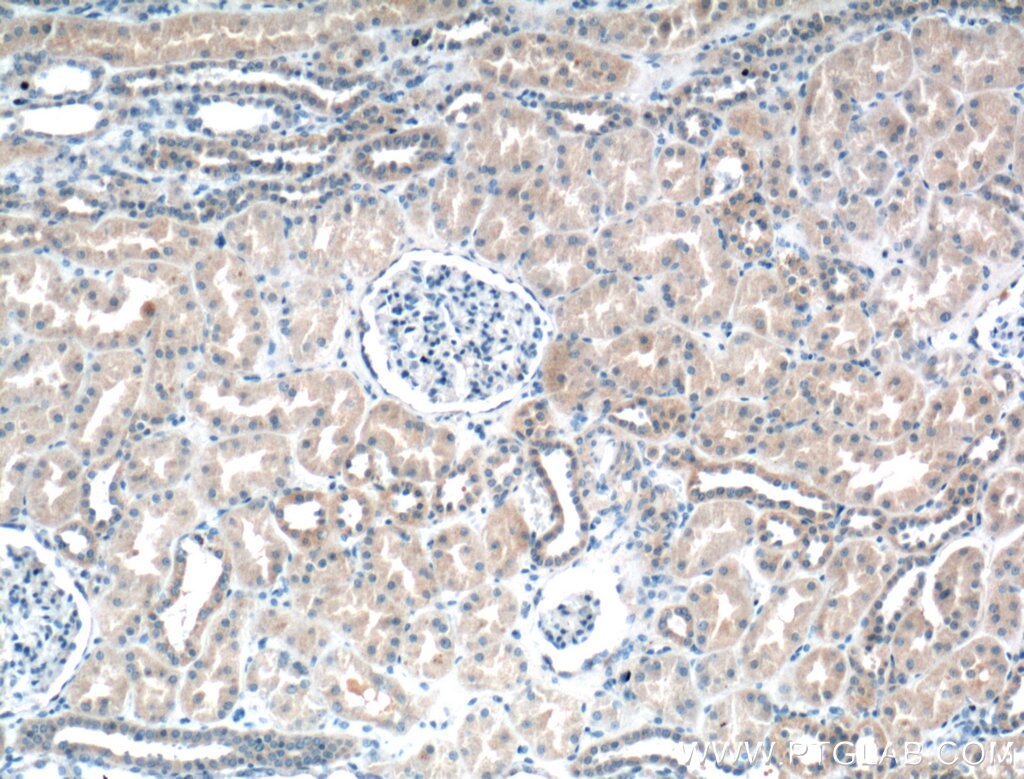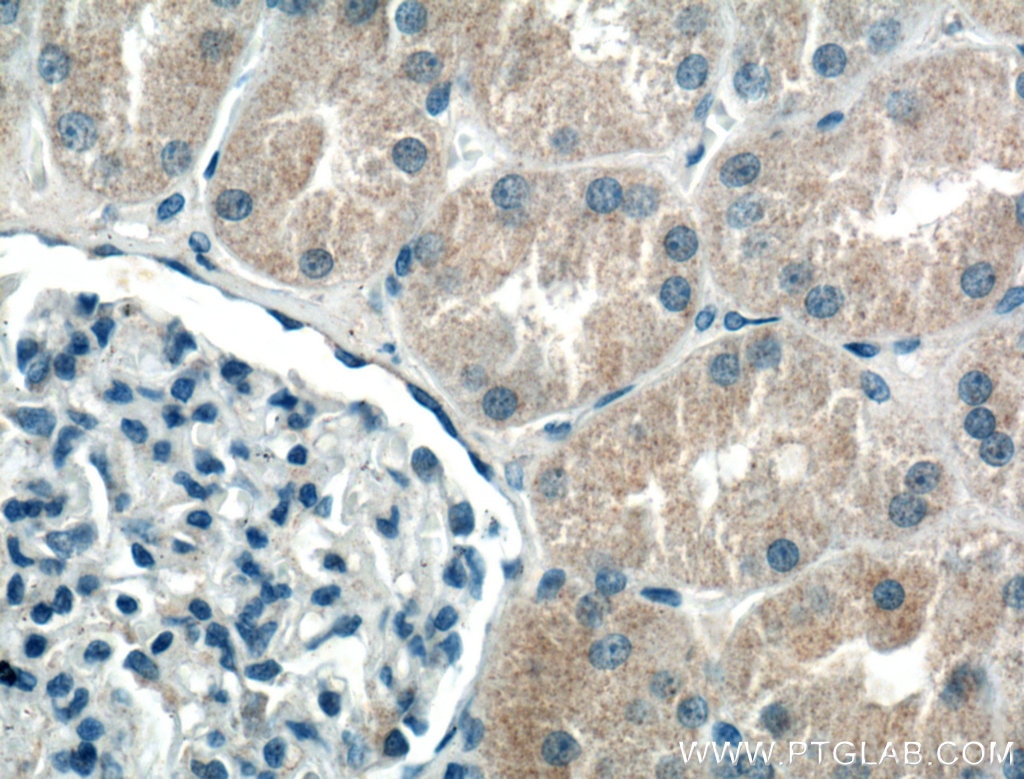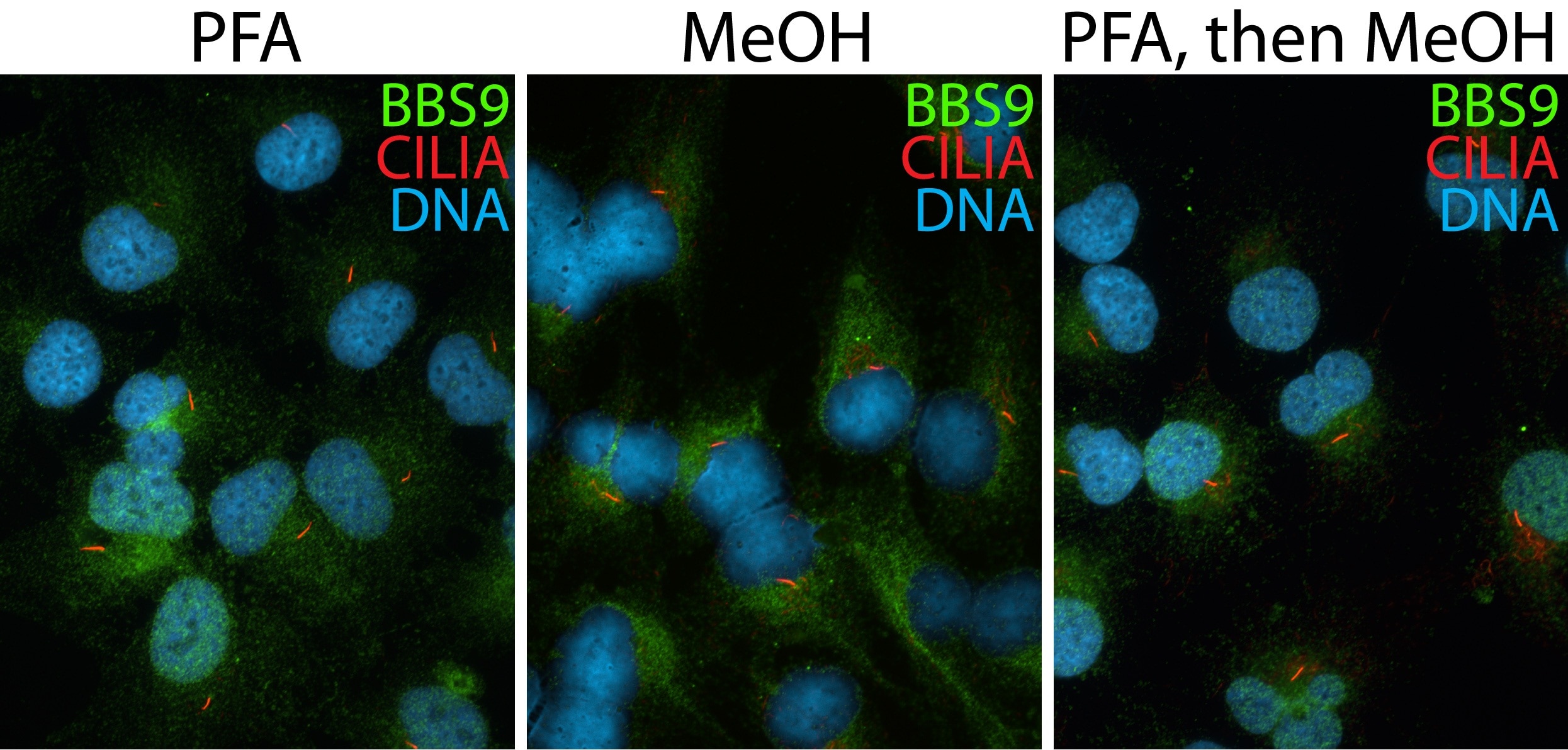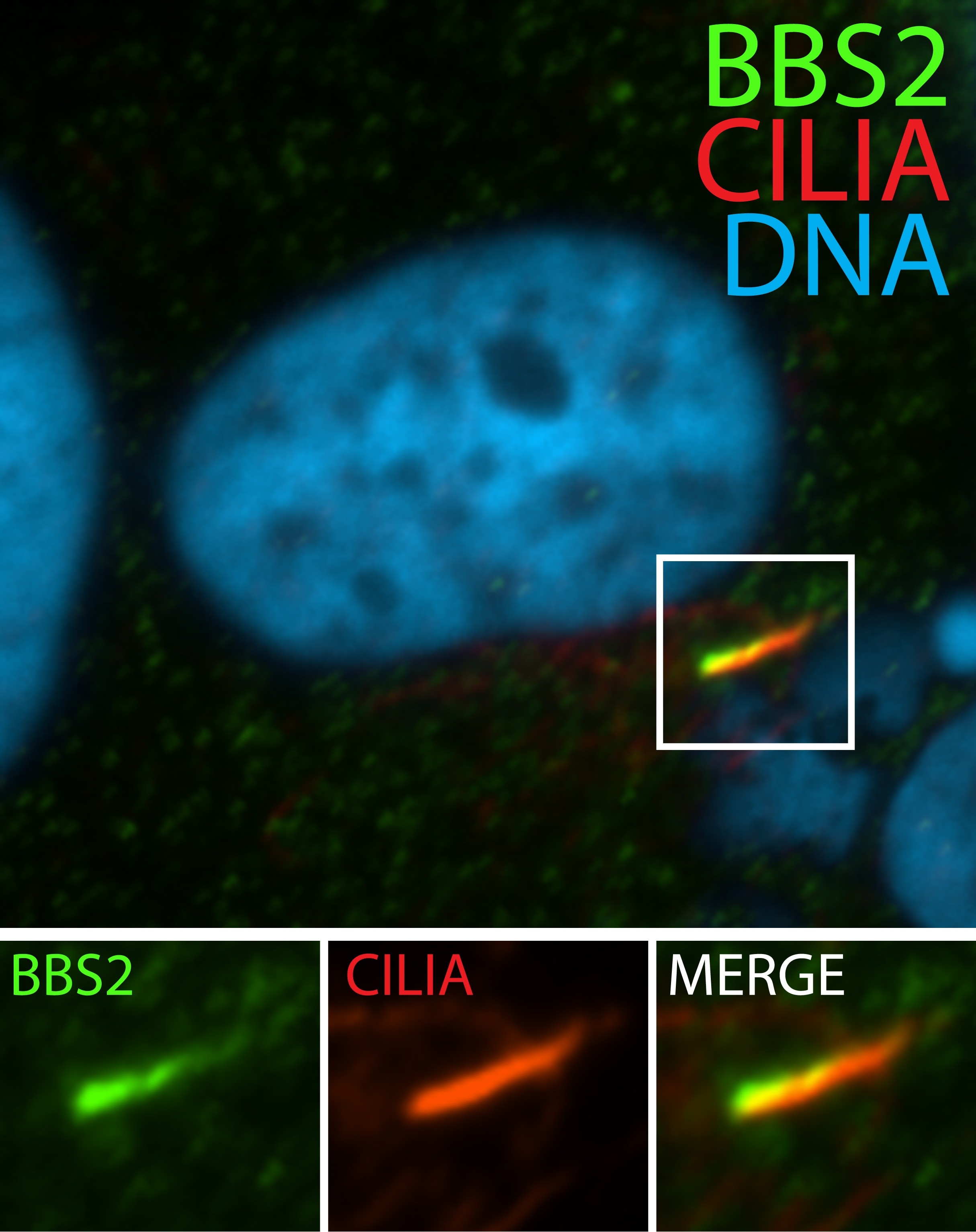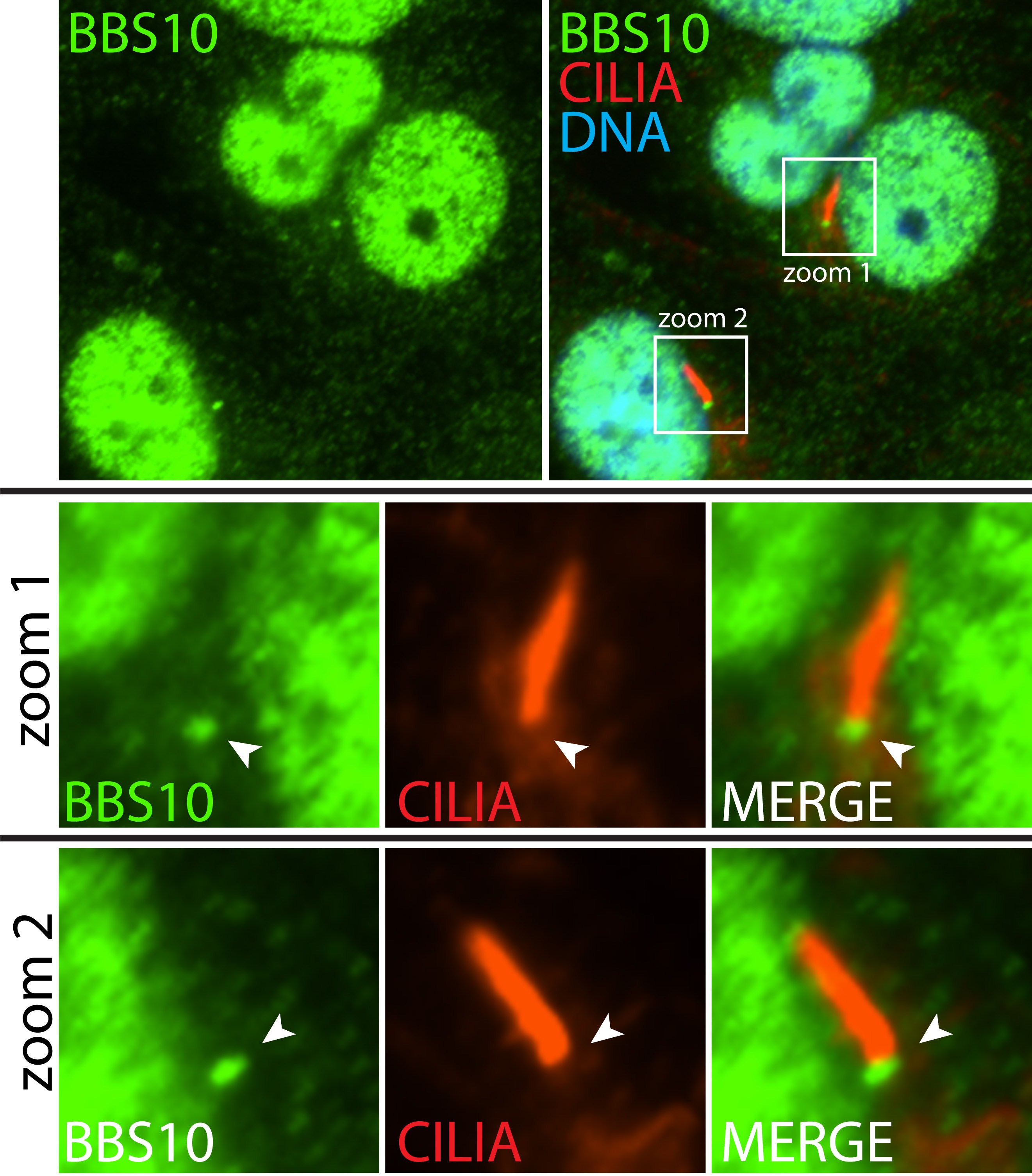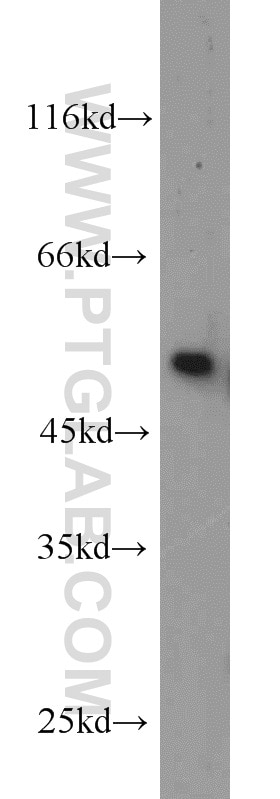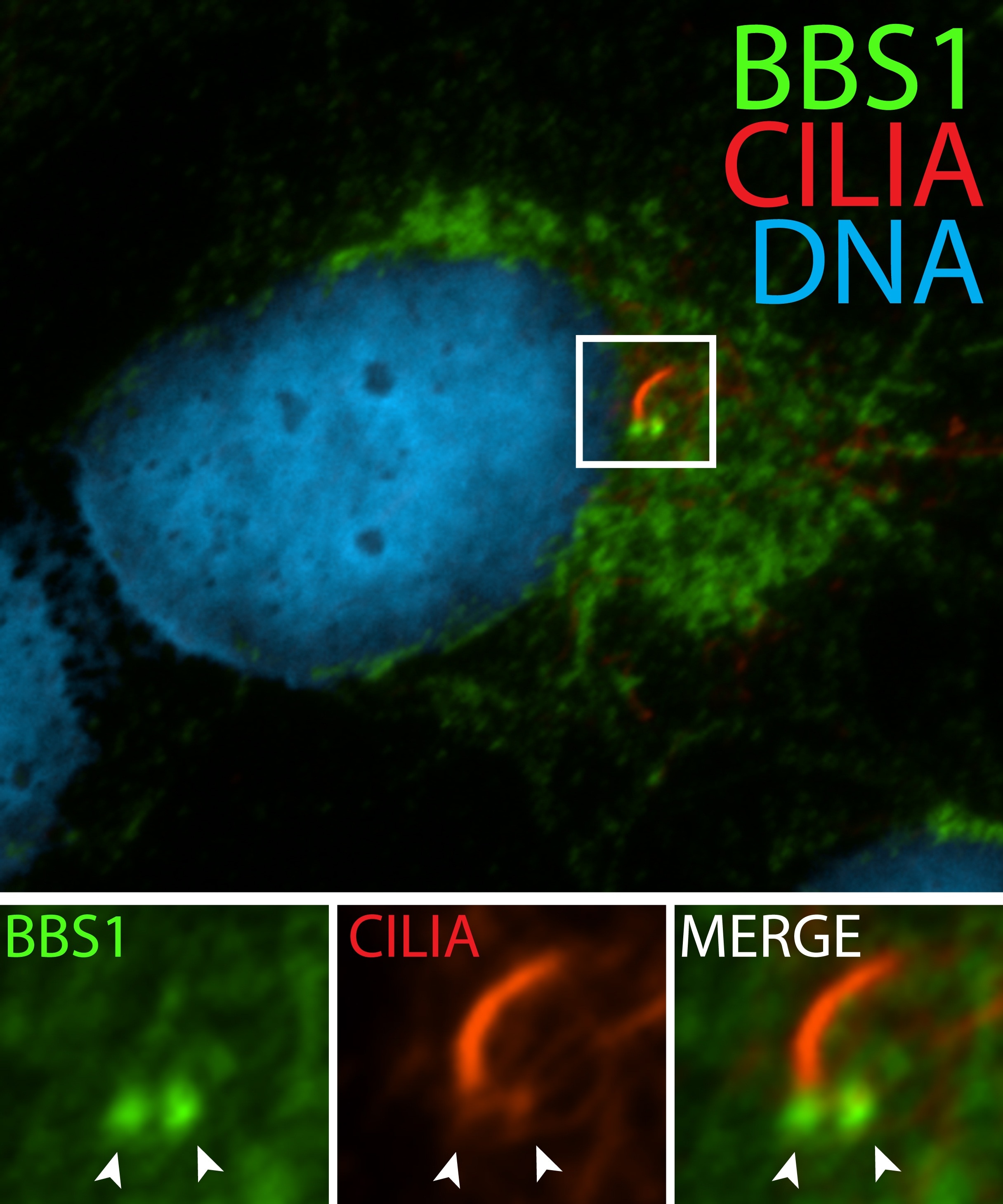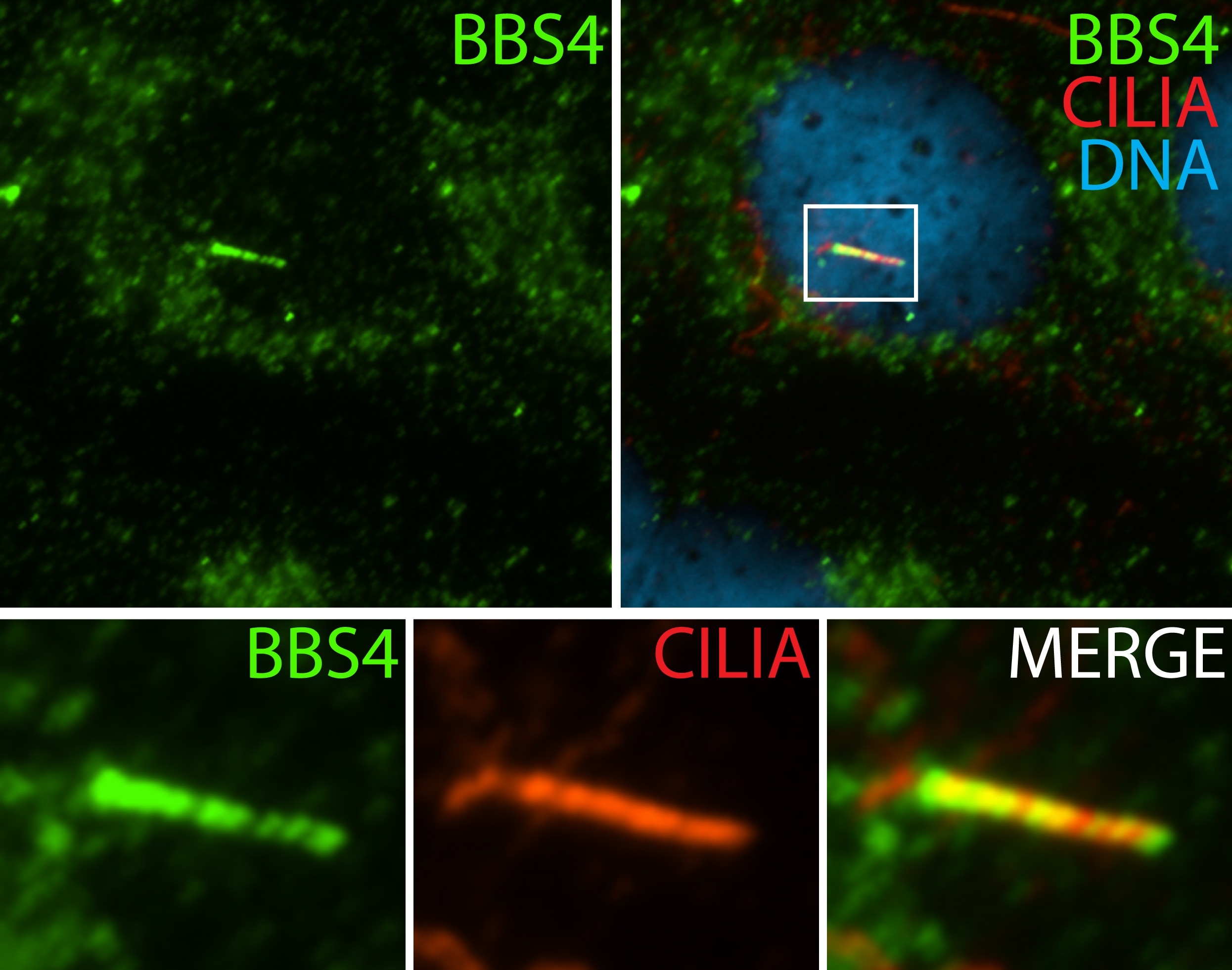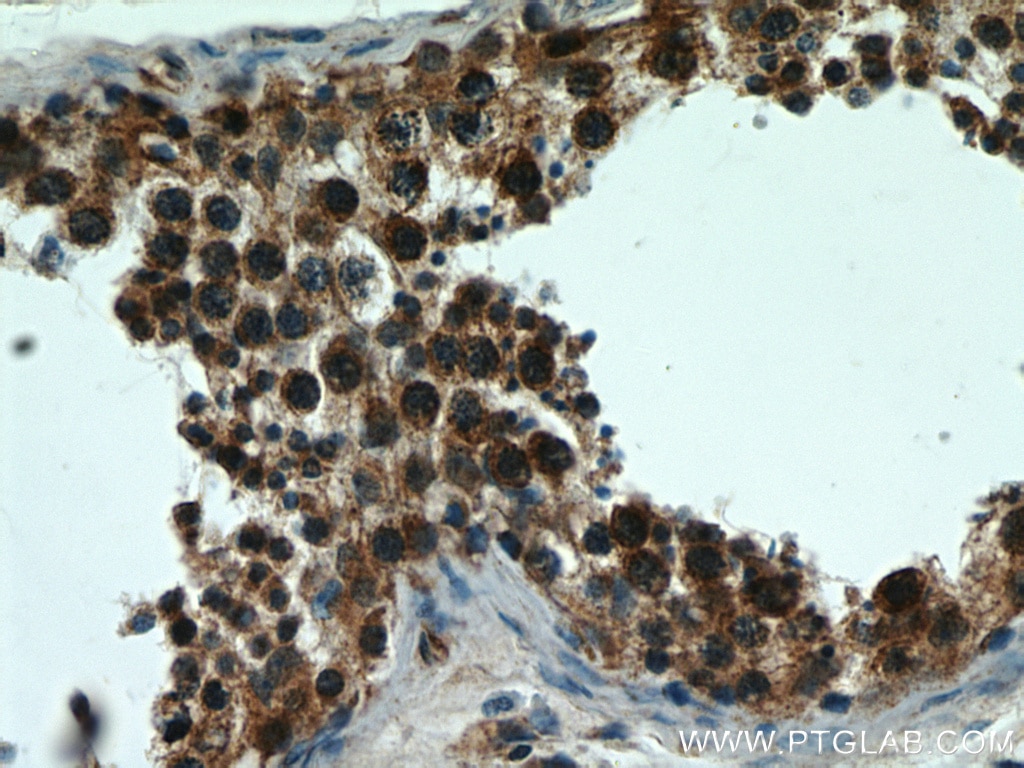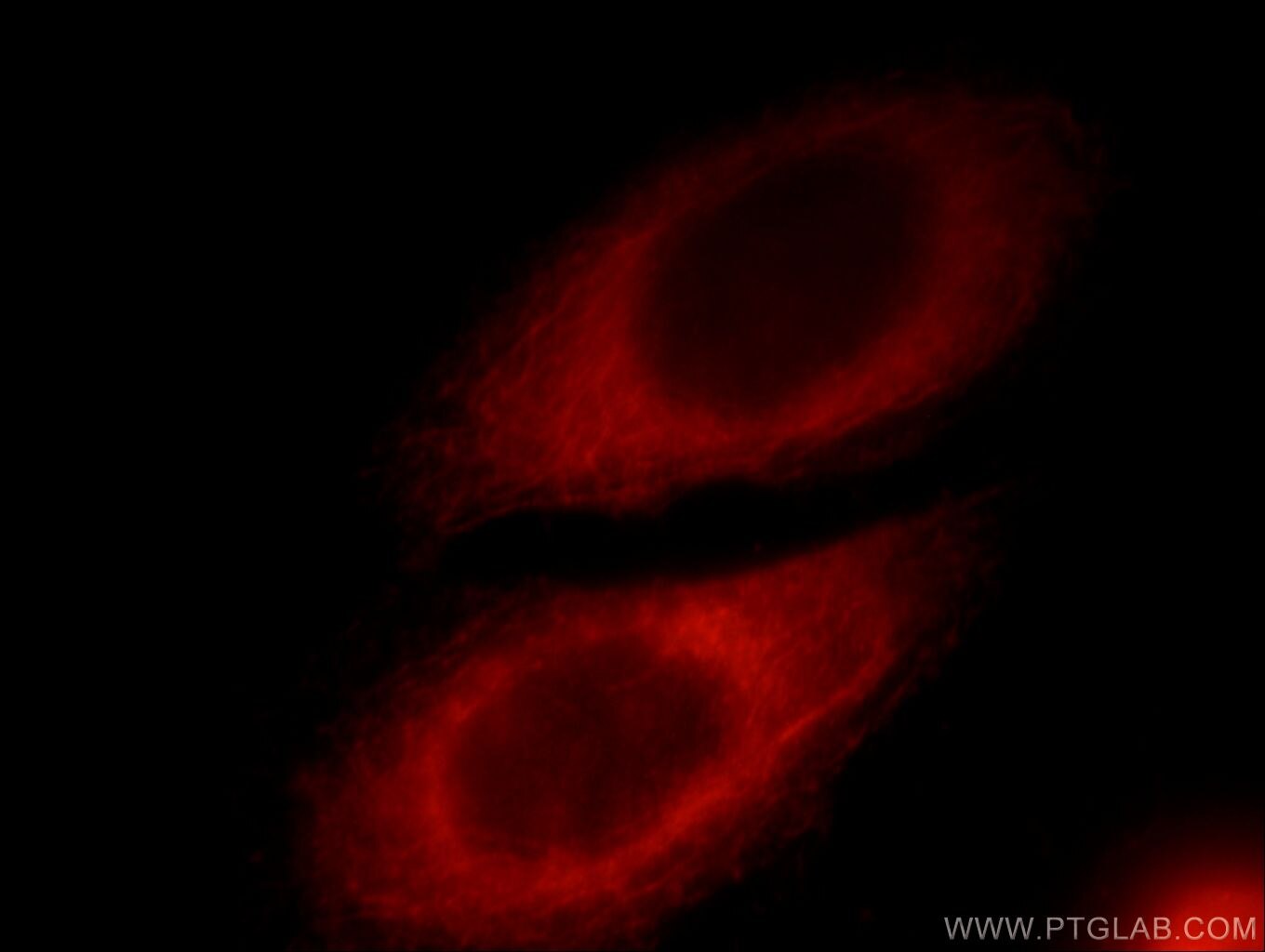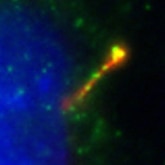- Phare
- Validé par KD/KO
Anticorps Polyclonal de lapin anti-BBS5
BBS5 Polyclonal Antibody for WB, IP, IHC, ELISA
Hôte / Isotype
Lapin / IgG
Réactivité testée
Humain, rat, souris
Applications
WB, IP, IF, IHC, CoIP, ELISA
Conjugaison
Non conjugué
N° de cat : 14569-1-AP
Synonymes
Galerie de données de validation
Applications testées
| Résultats positifs en WB | tissu rétinien de souris, tissu oculaire de souris, tissu testiculaire de rat, tissu testiculaire de souris, tissu testiculaire humain |
| Résultats positifs en IP | tissu testiculaire de souris, |
| Résultats positifs en IHC | tissu testiculaire humain, tissu d'estomac humain, tissu rénal de souris, tissu rénal humain, tissu testiculaire de souris il est suggéré de démasquer l'antigène avec un tampon de TE buffer pH 9.0; (*) À défaut, 'le démasquage de l'antigène peut être 'effectué avec un tampon citrate pH 6,0. |
Dilution recommandée
| Application | Dilution |
|---|---|
| Western Blot (WB) | WB : 1:500-1:1000 |
| Immunoprécipitation (IP) | IP : 0.5-4.0 ug for 1.0-3.0 mg of total protein lysate |
| Immunohistochimie (IHC) | IHC : 1:50-1:500 |
| It is recommended that this reagent should be titrated in each testing system to obtain optimal results. | |
| Sample-dependent, check data in validation data gallery | |
Applications publiées
| KD/KO | See 2 publications below |
| WB | See 13 publications below |
| IHC | See 1 publications below |
| IF | See 18 publications below |
| CoIP | See 1 publications below |
Informations sur le produit
14569-1-AP cible BBS5 dans les applications de WB, IP, IF, IHC, CoIP, ELISA et montre une réactivité avec des échantillons Humain, rat, souris
| Réactivité | Humain, rat, souris |
| Réactivité citée | rat, Humain, souris |
| Hôte / Isotype | Lapin / IgG |
| Clonalité | Polyclonal |
| Type | Anticorps |
| Immunogène | BBS5 Protéine recombinante Ag6153 |
| Nom complet | Bardet-Biedl syndrome 5 |
| Masse moléculaire calculée | 39 kDa |
| Poids moléculaire observé | 39 kDa |
| Numéro d’acquisition GenBank | BC044593 |
| Symbole du gène | BBS5 |
| Identification du gène (NCBI) | 129880 |
| Conjugaison | Non conjugué |
| Forme | Liquide |
| Méthode de purification | Purification par affinité contre l'antigène |
| Tampon de stockage | PBS avec azoture de sodium à 0,02 % et glycérol à 50 % pH 7,3 |
| Conditions de stockage | Stocker à -20°C. Stable pendant un an après l'expédition. L'aliquotage n'est pas nécessaire pour le stockage à -20oC Les 20ul contiennent 0,1% de BSA. |
Informations générales
BBS5 encodes a protein that has been directly linked to Bardet-Biedl syndrome. Bardet-Biedl syndrome (BBS) is an autosomal recessive condition characterised by rod-cone dystrophy, postaxial polydactyly, central obesity, mental retardation, hypogonadism, and renal dysfunction. Other associated clinical findings in BBS patients include diabetes, hypertension and congenital heart defects. BBS expression varies both within and between families and diagnosis is often difficult. Experimentation in non-human eukaryotes suggests that BBS5 is expressed in ciliated cells and that it is required for the formation of cilia. Alternate transcriptional splice variants have been observed but have not been fully characterized.
Protocole
| Product Specific Protocols | |
|---|---|
| WB protocol for BBS5 antibody 14569-1-AP | Download protocol |
| IHC protocol for BBS5 antibody 14569-1-AP | Download protocol |
| IP protocol for BBS5 antibody 14569-1-AP | Download protocol |
| Standard Protocols | |
|---|---|
| Click here to view our Standard Protocols |
Publications
| Species | Application | Title |
|---|---|---|
Nat Genet A transition zone complex regulates mammalian ciliogenesis and ciliary membrane composition. | ||
Cell The conserved Bardet-Biedl syndrome proteins assemble a coat that traffics membrane proteins to cilia. | ||
Nat Cell Biol Systematic proteomics of the VCP-UBXD adaptor network identifies a role for UBXN10 in regulating ciliogenesis. | ||
Dev Cell IFT27 Links the BBSome to IFT for Maintenance of the Ciliary Signaling Compartment. | ||
Dev Cell The Intraflagellar Transport Protein IFT27 Promotes BBSome Exit from Cilia through the GTPase ARL6/BBS3. | ||
